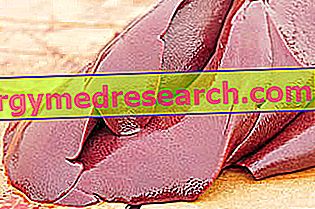PRENT ® is a drug based on acebutolol hydrochloride
THERAPEUTIC GROUP: Beta-blockers
IndicationsAction mechanismStudies and clinical effectiveness Usage and dosage instructionsWarnings Pregnancy and lactationInteractionsContraindicationsUndesirable effects
Indications PRENT ® Acebutolol
PRENT ® is indicated in the treatment of essential arterial hypertension, coronary heart disease from chronic coronary insufficiency or linked to infarction (angina pectoris), and heart rhythm disorders (tachycardia, extrasystoles, atrial fibrillation).
Mechanism of action PRENT ® Acebutolol
Acebutolol taken with PRENT ® is rapidly absorbed from the gastro-intestinal tract, reaching maximum plasma concentration after about 2 hours and a half from its ingestion. Once absorbed, 25% bound to plasma proteins, it is transported to the liver, where it undergoes a first-pass metabolism, necessary to obtain diacetolol, a pharmacologically active metabolite. The therapeutic action of PRENT ® is mainly due to the cardioselective beta blocking activity of this molecule, which allows to minimize the risk of side effects, such as bronchus and vasoconstriction, which are possible following the inhibition of beta 2 adrenergic receptors.
The inactivation of cardiac beta 1 receptors, which manifests itself with high selectivity at therapeutic doses, makes it possible to slow the heart rate at rest and under stress (by modulating the automatism of the sino-atrial node), and to reduce myocardial contractility in a proportional manner activation of the sympathetic, thus guaranteeing a reduction in myocardial oxygen consumption, a slowing of the conduction of the stimulus at the atrioventricular level and a reduction in the excitability of the myocardial mass.
These effects, also supported by intrinsic sympathomimetic activity (important in order to avoid manifest bradycardia), justify the therapeutic indications for which the drug PRENT ® is administered
After its therapeutic action, after a half-life of about 4 hours for acebutolol and 7 for diacetol, the drug is eliminated mainly through the faeces and only in small part through the urine.
Studies carried out and clinical efficacy
COMBINED THERAPY IN THE TREATMENT OF HYPERTENSION
The study in question indicates how the use of acebutolol monotherapy, in the treatment of hypertension in subjects of African ethnicity, cannot guarantee the achievement of adequate blood pressure levels. The results obtained with the concomitant administration of hydrochlorothiazide are definitely better.
2. THE EFFECTS OF ACEBUTOLOL ON PRESSURE AND HEART RATE DURING PHYSICAL EXERCISE
The study tested the effects of 8 weeks of treatment with acebutolol at 400mg on heart rate and diastolic pressure in patients with moderate hypertension both at rest and under physical exertion. The results show a drop in heart rate of about 13% and a modest decrease in diastolic pressure during exercise.
3.ACEBUTOLOL AND DOPING
The use of beta-blockers without an effective therapeutic indication has become widespread in sports (and particularly in concentration sports), in order to reduce some of the side effects of sympathetic overactivation that inevitably occurs in high-level competitions. This high-risk practice is considered doping and is fought with every effort by the judicial and sports authorities.
In addition to the classic cross analysis (blood, urine), new molecular techniques have allowed us to identify the use of doping substances directly from the hair, making the collection easier and faster.
Method of use and dosage
PRENT ® acebutolol 200/400 mg coated tablets: approximately 200 mg of acebutolol, taken with a little water before breakfast, is used to treat high blood pressure . This dosage can be increased up to 400mg per day, a dose which is generally recorded with the desired hypotensive effect, or up to 800mg in case of insufficient therapeutic response. In all the aforementioned cases, the choice of the correct dosage and the period of therapy should be made by the doctor after a careful evaluation of the physio-pathological conditions of the patient and his susceptibility to the drug.
The same discourse can also be extended to the treatment of coronary heart disease and heart rhythm disorders, for which the recommended range remains between 200 and 600 mg acebutolol daily.
IN ANY CASE, BEFORE TAKING PRENT ® Acebutolol - THE PRESCRIPTION AND CONTROL OF ITS OWN DOCTOR IS NECESSARY.
Warnings PRENT ® Acebutolol
PRENT ® therapy must necessarily be preceded and accompanied by a strict and careful medical check-up. Monitoring of renal function should be carried out with particular care in patients suffering from various types of heart disease, in order to avoid a deterioration in the state of renal health; the glycemic control should instead be maintained throughout the therapy, especially in patients suffering from diabetes, in order to avoid sudden glycemic drops, masked by the negative chronotropic action of acebutolol.
Acebutolol could increase sensitivity to allergens and make the related symptoms clinically more relevant; therefore, it would be appropriate to evaluate the possible cost / benefit ratio in patients with allergic predisposition. The reduction of tear secretions observed in patients receiving acebutolol therapy, could make the use of contact lenses difficult.
If therapy is to be discontinued, it would be appropriate, as with any other beta-blocker, to gradually reduce the dosage in order to avoid reactive side reactions.
The presence of dizziness and vertigo, especially felt in the initial phase of the treatment or following adjustment of the dosage, could reduce the patient's perceptive capacities, making it dangerous to use machinery and drive vehicles.
PREGNANCY AND BREASTFEEDING
Although acebutolol does not seem to be toxic or teratogenic to the fetus, we do not recommend taking this active ingredient during pregnancy and especially during the first trimester. In case of irremediable necessity, the treating physician and the gynecologist should evaluate the relationship between the possible benefits obtainable and the potential risks to the health of the fetus. In any case, if PRENT ® is used during pregnancy, it is important to stop the therapy gradually within the fourth week before delivery, in order to reduce the risk of hypotension, bradycardia, hypoglycemia and respiratory deficit in the newborn during labor.
The presence of modest concentrations of the active ingredient in breast milk suggests the suspension of breastfeeding during treatment with PRENT ®
Interactions
Given the masking action of acebutolol, it would be advisable, following a constant monitoring of glycemic concentrations, to adjust the dosage of any hypoglycemic drugs taken, in order to avoid abrupt glycemic drops.
Acebutolol can interact with various medicines, accentuating the negative and hypotensive inotropic and chronotropic effects. More precisely, the concomitant administration of diuretics, calcium antagonists, vasodilators, barbiturates and tricyclic antidepressants could potentiate hypotensive episodes, while the concomitant use of antiartmics could be at the basis of an altered modulation of heart rhythm. Cardiac glycosides, reserpine, alpha methyl dopa, clonidine and MAO inhibitors can instead cause hypertension, counteracting the therapeutic effects of PRENT ®
It would also be advisable to gradually suspend therapy with PRENT ® before surgery, to prevent anesthetics or muscle relaxants from enhancing the negative inotropic and chronotropic effects of acebutolol.
Contraindications PRENT ® Acebutolol
PRENT ® is contraindicated in cases of cardiogenic shock, hypotension, acute myocardial infarction, congestive and inadequately treated heart failure, acidosis, marked bradycardia, bronchopathies, SLE and hypersensitivity to one of its components.
PRENT ® should not be taken during the administration of MAO inhibitors or antiarmics of various kinds.
Undesirable effects - Side effects
The side effects observed following the administration of PRENT ® are comparable to those described in general for the cardioselective beta blocker category.
The most common include asthenia, headache, nausea, vomiting, diarrhea, dizziness, cold extremities, also accompanied by bradycardia and hypotension.
Clinically more significant adverse reactions (increased transaminases, metabolic / nutritional disorders, bronchopathies) and a worsening of symptoms in patients with particular diseases (Raynaud's syndrome, liver diseases and nephropathies), were rarely observed following the administration of acebutolol.
In a very small proportion of patients with liver function abnormalities, the appearance of antinuclear antibodies involved in a series of similar lupus-erythematosus reactions, which disappeared following discontinuation of therapy, was also observed.
Note
PRENT ® can be sold only under medical prescription.
The use of PRENT ® in sportsmen, in the absence of therapeutic necessity, to reduce the physiological response to stress and the related symptoms (tremor of the limbs, increase in blood pressure, increase in emotional tension etc.) is a DOPANT practice.



